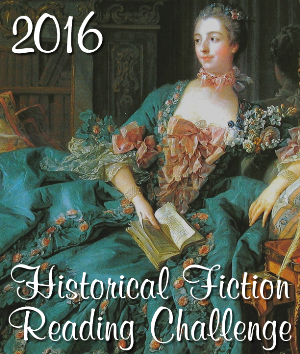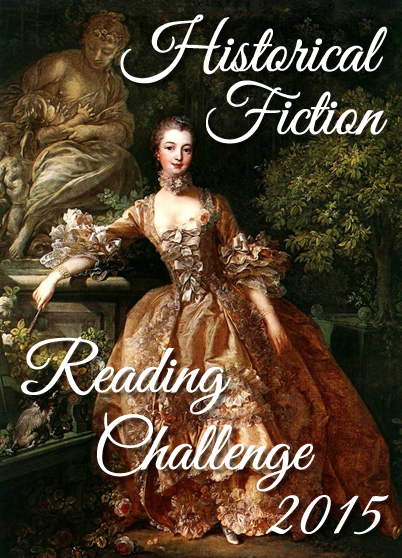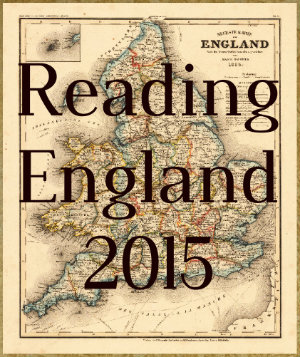
The novel is told from the perspective of middle-school basketball phenom Josh Bell, nicknamed Filthy McNasty by his father, a legendary former basketball player named Chuck Bell. Josh has an equally impressive basketball-playing twin named Jordan, and the two boys attend school where their mother is principal. Things get complicated for Josh when his brother starts dating a girl and his father’s health problems take a serious turn.
When one of my students read this book last year as an independent read, he said it was the best book he had ever read. I’m not going to go that far, but I understand why he said it. This student is not a big reader, and he plays hockey. Finally, he must have thought, here is a book about a boy like me, who loves the game with everything he’s got. I think it also opened up his notion of what poetry could be and do. I always say Kobe Bryant did us English teachers a solid by retiring with a poem. I think what happens too often is that our kids don’t see themselves in the books we select for them, and the boys who passed this book around my classroom last year saw themselves in this book. They also don’t see poetry as something that can be cool or that can speak to them. That’s something to thank Kwame Alexander for.
Some of the poems seem to mimic basketball on the page.
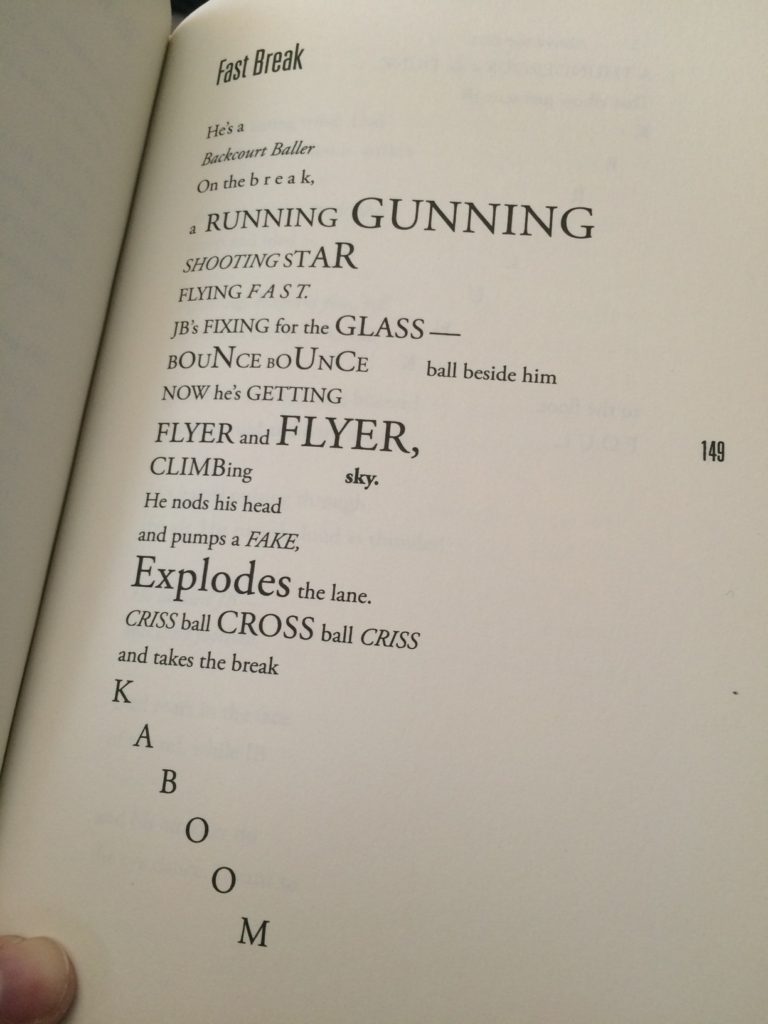
Other poems are constructed in interesting ways. I am a big fan of poems in two voices. One of my students wrote an excellent one for a multigenre writing project she did on Robin Williams. In one voice, she wrote a monologue he had delivered as part of a comedy routine. In the other voice, she wrote what Williams was thinking as he spoke. When she presented to the class, she asked me to read Williams’s interior monologue while she read the comedy routine. It was an amazing poem, and I think we all felt its power, particularly when read aloud in two voices. Alexander includes a similar kind of poem in this book. It can be read three ways: 1) as one poem, going back and forth; 2) as a second poem on the left, reading vertically; 3) as a third poem on the right, reading vertically. It works each way.
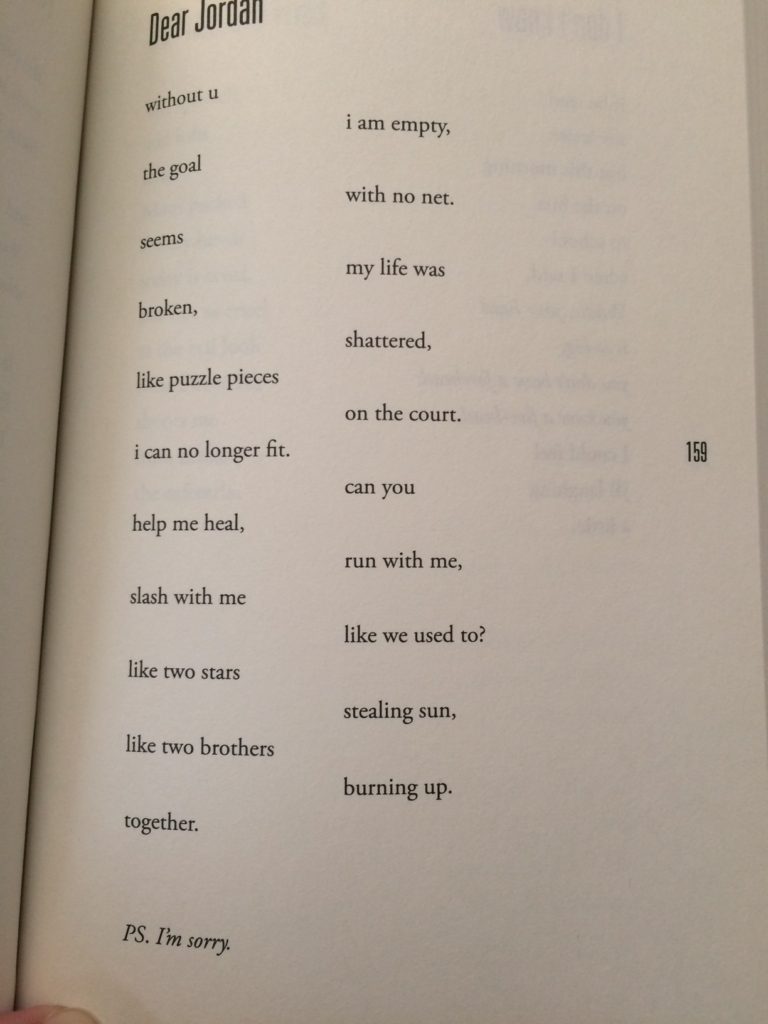
I can see why this book received so much praise from teachers and librarians as well as winning the Newbery Medal and the Coretta Scott King Award. Highly recommended to anyone who likes basketball, who likes to dip into children’s books on occasion, or who loves poetry.
Rating:





